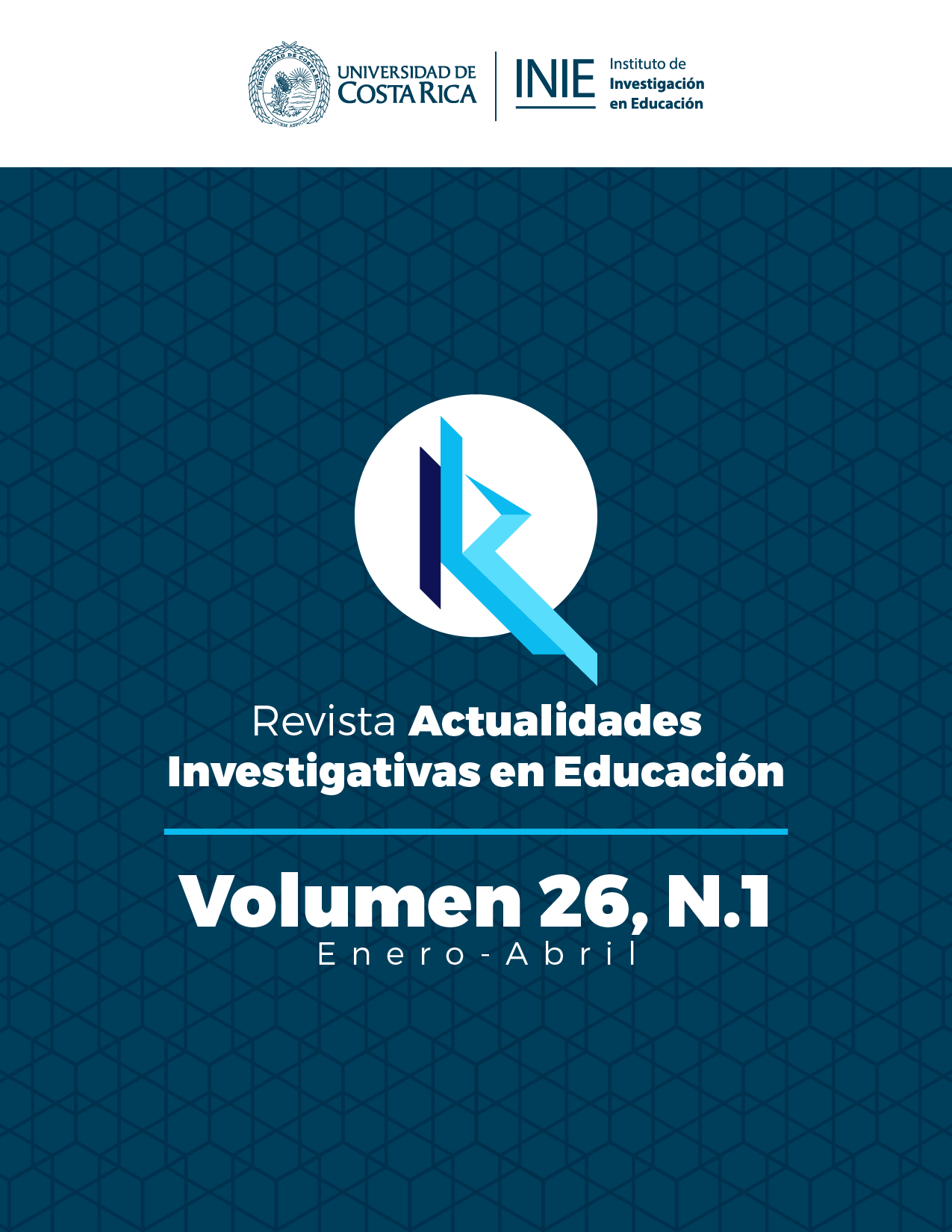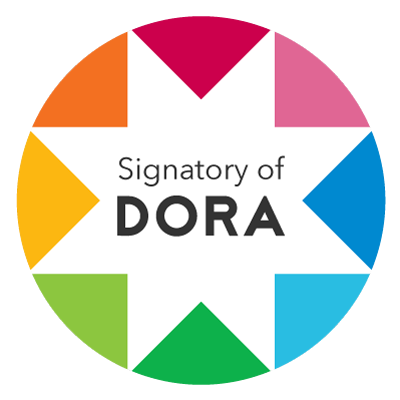Leadership Skills in Undergraduate Medical Education at the University of Costa Rica
DOI:
https://doi.org/10.15517/ejvjwt96Keywords:
medical education, leadership skills, higher education, vocational training, communication skills, teamworkAbstract
This article aimed to explore the perceptions of third-year medical students at the University of Costa Rica regarding the leadership skills (LS) they have acquired as part of their professional training. The research followed a qualitative approach using a case study design. Semi-structured interviews were conducted with three students who had participated in community outreach activities and hospital clinical rotations. Data were analyzed through thematic coding based on Braun and Clarke’s method. The analysis began with one main theme and four subthemes; subsequently, two overarching themes emerged, the first comprising three subthemes and the second four. The findings revealed a critical perception of leadership within medical settings, where authoritarian and hierarchical models prevail, hindering student participation. Nevertheless, positive experiences were also identified that helped strengthen skills such as communication, empathy, creativity, decision-making, and teamwork. Participants recognized the need for leadership grounded in humanistic, collaborative, and ethical principles, as well as structured training that intentionally fosters these competencies from the undergraduate level. The study concluded that leadership skills in medicine should be addressed through a comprehensive pedagogical model that integrates technical competencies with soft skills in an environment that promotes trust, equity, and participation. It is recommended that educational institutions include specific training modules on leadership, foster inclusive learning environments, and establish emotional support strategies during clinical practice.
Downloads
References
Acosta Patiño, July Catherine., Maya Martínez, Yenny Stefany., Ruano Torres, Luisa Fernanda., y Chavez Martínez, Janeth Lorena. (2024). Ética y liderazgo en salud: el arte de enfrentar desafíos con propósito. Excelsium Scientia Revista Internacional de Investigación, 8(2), 24–30. https://doi.org/10.31948/esrii.v8i2.4603
Bass, Bernard., y Avolio, Bruce. (1994). Improving organizational effectiveness through transformational leadership. SAGE Publications.
Born, Karen., Moriates, Christopher., Valencia, Victoria., Kerssens, Marlou., y Wong, Brian (2019). Learners as Leaders: A Global Groundswell of Students Leading Choosing Wisely Initiatives in Medical Education. Academic medicine: journal of the Association of American Medical Colleges, 94(11), 1699–1703. https://doi.org/10.1097/ACM.0000000000002868
Braun, Virginia., y Clarke, Victoria. (2022). Thematic analysis: A practical guide. SAGE Publications.
Celis, Juan., Bustamante, Marco., Cabrera, Dino., Cabrera, Magno., Alarcón, Walter., y Monge, Eduardo. (2001). Ansiedad y Estrés Académico en Estudiantes de Medicina Humana del Primer y Sexto Año. Anales de la Facultad de Medicina, 62(1), 25-30. https://www.redalyc.org/pdf/379/37962105.pdf
Consejo Nacional de Rectores [CONARE]. (2022a). Dictamen OPES 12-2022. Rediseño de la Especialidad en Medicina Familiar y Comunitaria. Consejo Nacional de Rectores. https://repositorio.conare.ac.cr/server/api/core/bitstreams/73cf636c-07db-466d-bd1a-61492251cd8b/content
Consejo Nacional de Rectores [CONARE]. (2022b). Dictamen OPES 34-2022. Especialidad en Valoración Médica del Daño Corporal. Consejo Nacional de Rectores. https://repositorio.conare.ac.cr/server/api/core/bitstreams/aa16b5e5-be16-4b6f-8b55-843fb1ef98c0/content
Conte, Helen., Wihlborg, Jonas., y Lindström, Veronica. (2022). Developing new possibilities for interprofessional learning- students’ experience of learning together in the ambulance service. BMC Medical Education, 22, 192. https://doi.org/10.1186/s12909-022-03251-8
Curay, Pablo. (2023). Aprendizaje colaborativo en los estudiantes de medicina. Polo del Conocimiento, 8(3), 565-582. https://dialnet.unirioja.es/servlet/articulo?codigo=9295481
Edmondson, Amy. (1999). Psychological safety and learning behavior in work teams. Administrative Science Quarterly, 44(2), 350–383. https://doi.org/10.2307/2666999
Flick, Uwe. (2023). An introduction to qualitative research (7th ed.). SAGE Publications.
Flores, Grettchen. (2004). Perspectivas futuras de las actividades de educación médica continua en Costa Rica. Medicina Legal de Costa Rica, 21(1), 129-136. http://www.scielo.sa.cr/scielo.php?script=sci_arttext&pid=S1409-00152004000100009&lng=en&tlng=es
Frampton, Susan., Guastello, Sara., y Lepore, Michael. (2013). Compassion as the foundation of patient-centered care: The importance of compassion in action. Journal of Comparative Effectiveness Research, 2(5), 443–455. https://doi.org/10.2217/CER.13.54
Girela, Beatriz., Rodríguez, María., y Girela, Eloy. (2018). La relación médico-paciente analizada por estudiantes de medicina desde la perspectiva del portafolio. Cuadernos de Bioética, 29(95), 59–67. https://aebioetica.org/revistas/2018/29/95/59.pdf
Guinez-Molinos, Sergio., Martínez-Molina, Agustín., Gomar-Sancho, Carmen., Arias-González, Víctor., Szyld, Demian., García-Garrido, Encarnación., y Maragaño-Lizama, Patricio. (2017). A collaborative clinical simulation model for the development of competencies by medical students. Medical teacher, 39(2), 195–202. https://doi.org/10.1080/0142159X.2016.1248913
Harden, R. M., y Crosby, Joy. (2000). AMEE Guide No. 20: The good teacher is more than a lecturer—the twelve roles of the teacher. Medical Teacher, 22(4), 334–347. https://doi.org/10.1080/014215900409429
Hirayama, Paula., Miclos, Paula., y Días, Olga. (2023). Authentic Leadership, Personality Types, and Job Satisfaction: Study with Nurses in a Private Hospital. Journal of nursing management, 2023(1), 6656568. https://doi.org/10.1155/2023/6656568
Hur, Year., Yeo, Shanghee., y Lee, Keumho. (2022). Medical students’ self-evaluation of character, and method of character education. BMC Medical Education, 22. https://doi.org/10.1186/s12909-022-03342-6
Klifto, Christopher., Cheung, Emilie., Holcomb, Jason., Frankle, Mark., Duralde, Xavier., MacDonald, Peter., Ricchetti, Eric., Aibinder, William., Amini, Michael., Barnes Leslie., Byram, Ian., Chalmers, P., Chuinard, Christopher,, Friedman, Alan., Gilotra, Mohit., Gregory, James., Grogan, Brian., Horneff, John., Kassam, Hafiz., Kazanijian, Kacj., Kilcoyne, Kelly., Kowalsky, Marc., Li, Xinning., Liu, Joseph., Muh, Stephanie., Munoz, Julianne., Patterson, Brendan., Phipatanakul, Wesley., Ward, Abner., Waterman, Brian., Woodmass, Jarret., y Wright, Melissa. (2024). Are leaders born to lead, or are they made? Journal of shoulder and elbow surgery, 33(3), 531–535. https://pubmed.ncbi.nlm.nih.gov/37777042/
Knox, Sarah., y Burkard, Allan. (2009). Qualitative research interviews. Psychotherapy research: journal of the Society for Psychotherapy Research, 19(4-5), 566–575. https://doi.org/10.1080/10503300802702105
Lincoln, Yvonna., y Guba, Egon. (1985). Naturalistic inquiry. SAGE Publications.
Lugo-Machado, Juan., Escobar-Morales, Ana., Medina-Valentón, Elizabeth., y García-Ramírez, Patricia. (2024). Relaciones jerárquicas de poder en la educación médica. Medicina Interna de México, 40(4), 264–270. https://medicinainterna.org.mx/article/relaciones-jerarquicas-de-poder-en-la-educacion-medica/
Martínez, Gregorio., Santos, Jesús., Leal, Eduardo., y Hernández, Angélica. (2020). Liderazgo transformacional en estudios de ciencias de la salud. Educación Médica Superior, 34(2), e1920. https://n9.cl/zshnwu
McKimm, Judy., y Swanwick, Tim. (2011). Leadership development for clinicians: what are we trying to achieve?. The clinical teacher, 8(3), 181–185. https://doi.org/10.1111/j.1743-498X.2011.00473.x
Melo, Ellen., Suassuna, Kaysa., Pimentel, Ana., y Silveira, Caíque. (2023). Liderança na educação médica para qualificação da atenção à saúde: Uma revisão integrativa. Revista Interfaces: Saúde, Humanas e Tecnologia, 11(2), 2055–2062. https://doi.org/10.16891/2317-434X.v11.e1.a2023.pp2055-2062
Merriam, Sharan., y Tisdell, Elizabeth. (2022). Qualitative research: A guide to design and implementation (5th ed.). Jossey-Bass.
Mikio, Hayashi., Takuya, Saiki., Steven, Kanter y Ming-Jung, Ho. (2022). Leaders’ perspectives and actions to manage challenges in medical education presented by the COVID-19 pandemic: a nationwide survey of Japanese medical colleges. BMC Medical Education, 22. https://doi.org/10.1186/s12909-022-03193-1
Morán-Barrios, Jesús., Ruiz de Gauna, Pilar., Ruiz Lázaro, Pedro Manuel., y Calvo, Rosa. (2020). Metodologías complementarias de aprendizaje para la adquisición de competencias en la formación de especialistas y actividades profesionales confiables. Educación Médica, 21(5), 328–337. https://doi.org/10.1016/j.edumed.2020.02.001
Northouse, Peter. (2022). Leadership: Theory and practice (9th ed.). SAGE Publications.
Nowell, Lorelly., Norris, Jill., White, Deborah., y Moules, Nancy. (2017). Thematic analysis: Striving to meet the trustworthiness criteria. International Journal of Qualitative Methods, 16(1), 1–13. https://doi.org/10.1177/1609406917733847
Organización Mundial de la Salud. (2003). Skills for health: Skills-based health education including life skills: An important component of a child-friendly/health-promoting school. https://iris.who.int/bitstream/handle/10665/42818/924159103X.pdf
Patton, Michael. (2023). Qualitative research & evaluation methods: Integrating theory and practice (5th ed.). SAGE Publications.
Pervaz, Maha., Velan, Gary., O’Sullivan, Anthony., y Chinthaka, Balasooriya. (2020). The collaborative learning development exercise (CLeD-EX): an educational instrument to promote key collaborative learning behaviours in medical students. BMC Medical Education, 20, . https://doi.org/10.1186/s12909-020-1977-0
Ramachandran, Sunder., Balasubramanian, Sreejith., James, Wayne Fabian., y Al Masaeid, Turki. (2023). ¿Hacia dónde va el liderazgo compasivo? Una revisión sistemática. Management Review Quarterly, 74(4), 1473–1557. https://doi.org/10.1007/s11301-023-00340-w
Rojas, Nydia. (2024). Tendencias actuales del liderazgo médico en las organizaciones. https://revistas.umng.edu.co/index.php/ciencia/article/view/7552/6129
Ross, Simone., Sen Gupta, Tarun., y Johnson, Peter. (2021). Leadership curricula and assessment in Australian and New Zealand medical schools. BMC Medical Education, 21. https://doi.org/10.1186/s12909-020-02456-z
Ruiz-Chaves, Warner., y Zeledón-Sánchez, Fernando. (2024). Desarrollo de habilidades de liderazgo en la formación del estudiantado de medicina: Revisión sistemática. Revista Digital de Investigación en Docencia Universitaria, 18(1), e1801. https://doi.org/10.19083/ridu.2024.1801
Sancho-Ugalde, Hilda., y Vanegas-Pissa, Juan. (2019). Revisión de la educación médica en Costa Rica: logros y desafíos. FEM: Revista de la Fundación Educación Médica, 22(4), 159–164. https://scielo.isciii.es/scielo.php?script=sci_abstract&pid=S2014-98322019000400002
Saxena, Anurag., Meschino, Diane., Hazelton, Lara., Chan, Ming-Ka., Benrimoh, David., Matlow, Anne, Dath, Deepack., y Busari, Jamiu. (2019). El poder y el liderazgo médico. BMJ Leader, 3(3), 92–98. https://doi.org/10.1136/leader-2019-000139
Sayyeda, Ajwad., Sahua, Shivani., Kanyala, Deepika., y Sablea, Shantanu. (2024). Effective leadership strategies in healthcare: A narrative review. Multidisciplinary Reviews, 8(3), 2025090. https://doi.org/10.31893/multirev.2025090
Tawanwongsri, Weeratian., y Phenwan, Tharin. (2019). Reflective and feedback performances on Thai medical students’ patient history-taking skills. BMC Medical Education, 19(1), 85. https://doi.org/10.1186/s12909-019-1585-z
Telio, Summer., Ajjawi, Rola., y Regehr, Glenn. (2015). The “educational alliance” as a framework for reconceptualizing feedback in medical education. Academic Medicine, 90(5), 609–614. https://doi.org/10.1097/ACM.0000000000000560
Van Diggele, Christie., Roberts, Chris., y Lane, Stuart. (2022). Leadership behaviours in interprofessional student teamwork. BMC Medical Education, 22. https://doi.org/10.1186/s12909-022-03923-5
Walumbwa, Fred., Avolio, Bruce., Gardner, William., Wernsing, Tara., y Peterson, Suzanne. (2008). Authentic leadership: Development and validation of a theory-based measure. Journal of Management, 34(1), 89–126. https://doi.org/10.1177/0149206307308913
Downloads
Published
Issue
Section
License
Copyright (c) 2025 Olman Salazar Ureña, Fernando Zeledón Sánchez (Autor/a)

This work is licensed under a Creative Commons Attribution-NonCommercial-ShareAlike 4.0 International License.
All published articles and essays are protected by Creative Commons (CC) licenses, under the Attribution-NonCommercial-ShareAlike - CC BY-NC-SA 4.0 standard, which constitute a complement to traditional copyright, under the following terms : first, the authorship of the referred document must always be acknowledged; second, no article or essay published in the ACTUALIDADES INVESTIGATIVES EN EDUCACIÓN Magazine can have commercial purposes of any nature; and third, adaptations of the manuscript must be shared under the same terms.
The journal allows the author to hold their copyright without restriction, but the author must inform that the article or essay were published first through this journal to avoid coincidences with other journals in the future.







